| THIS WEEK |
A lot has changed over the last few days. Yesterday Senator Joe Manchin (D-WV) shocked the White House by revealing that he will not support President Biden’s Build Back Better Act. One of Manchin’s main sticking points? The enhanced Child Tax Credit, an effort that would benefit millions of working families in the state he was elected to represent.
The most fitting reaction to Manchin’s stance may have come from Kristen Olsen, a mother and West Virginia activist in the Poor People’s Campaign: “A multi-millionaire politician funded by corporate coal interests has the power to push my four-year-old boy and me off the economic cliff at the end of this month.”
But Manchin has sometimes reversed his positions in the past, and backers of Build Back Better will be redoubling their efforts in January.
On a more inspiring note, a lefitist millennial – Gabriel Boric – has just emerged victorious in the Chilean presidential election against his opponent, an admirer of the Pinochet dictatorship. Boric has vowed to work to end Chile’s neoliberal economic model and raise taxes on the wealthy to fight inequality, protect the environment, and uplift families.
We’ll be off the next two weeks, but hope you’ll end your year with us by reading and sharing our round-up of 2021 in ten inequality charts. Wishing a happy and healthy holiday to you and yours. See you in 2022!
Chuck Collins and Rebekah Entralgo,
for the Institute for Policy Studies Inequality.org team
|
|
| |
|
| INEQUALITY BY THE NUMBERS |
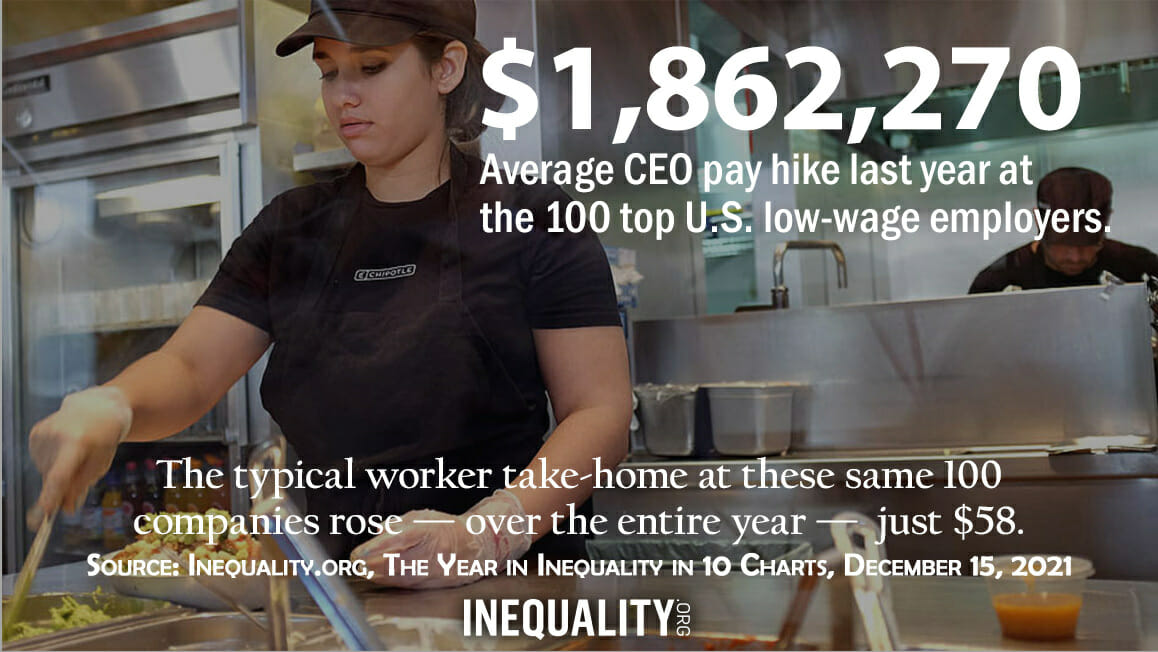 |
|
|
|
| |
|
| FACES ON THE FRONTLINES |
 |
| Across the Pond, Gig Workers in the Driver’s Seat |
| One year ago California became ground zero for a costly campaign driven by companies like Uber and Doordash to further exploit gig economy workers. But we don’t have to look too far to see where a worker-driven campaign to rein in these companies could lead us. The UK high court recently upheld a ruling from this spring that entitles gig workers to basic worker protections. Per the ruling, companies like Uber must deliver wage protections, vacation pay, and other basic benefits for UK gig workers. Our neighbors across the pond have taken a stand in favor of workers. Now it’s time for the United States to do the same. Gig economy expert Bama Athreya has more on this latest development. |
|
| |
|
| WORDS OF WISDOM |
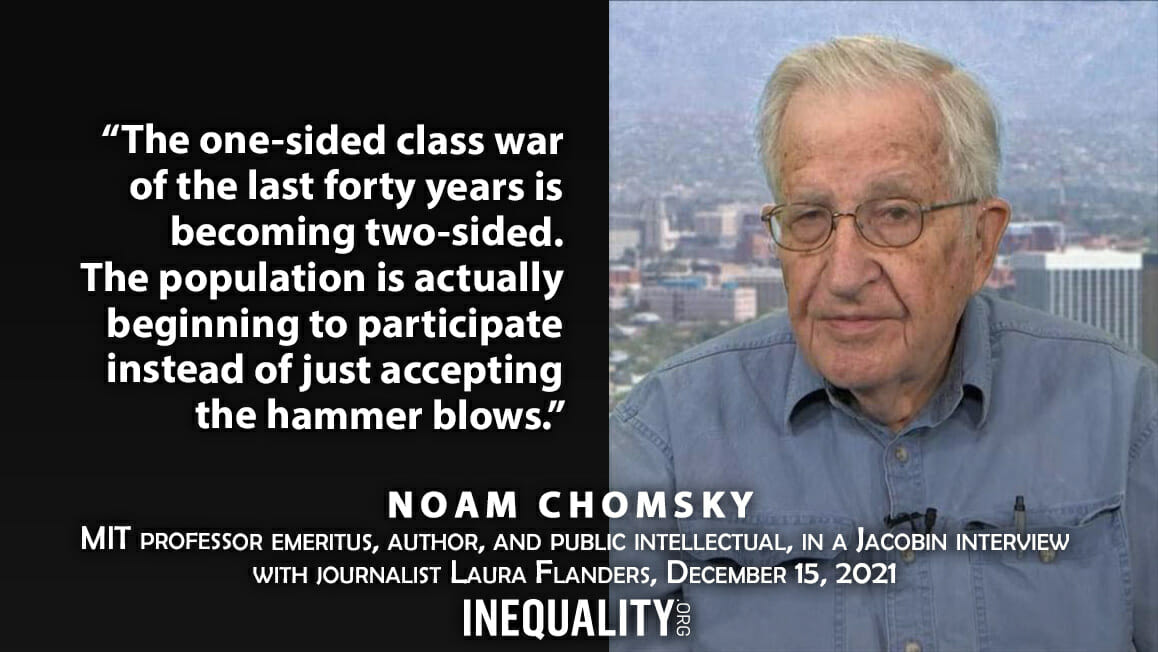 |
|
|
|
| |
|
PETULANT PLUTOCRAT
OF THE WEEK |
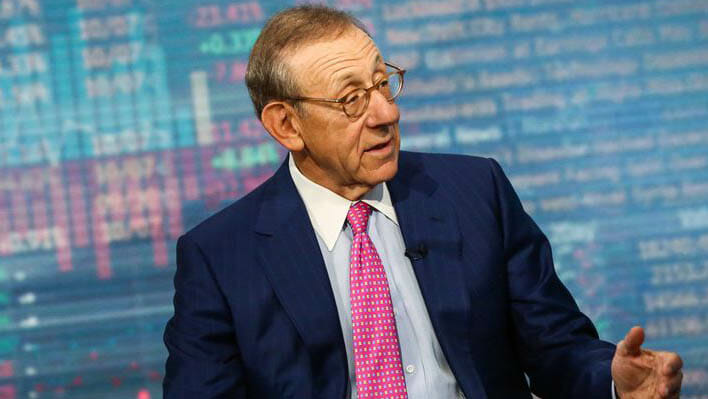 |
| How Dare You Elected Folks Touch My Tax Code! |
| Billionaire real estate developer Stephen Ross doesn’t like lawmakers messing around in the deep weeds of the tax code. He made that clear last week in a Bloomberg interview that blamed “politics in the Northeast” — plutocrat-speak for moves to tax the rich — for sparking a massive business exodus out of New York. The “tax situation and everything with Covid,” Ross charged, “really has opened up Florida,” with “many, many” corporations, private equity firms, and investment banks moving down Miami way, where Ross happens to own an NFL football franchise. Taxes happen to matter more to Ross than the typical deep pocket. He started out as a tax attorney, then made a fortune exploiting the tax breaks meant to encourage the building of affordable housing. In more recent years, Ross has been exploiting the tax deductions meant to encourage donations to universities. In effect, notes Forbes tax analyst Peter Reilly, Ross has had his alma mater “renting its brand to a tax avoidance scheme.” |
|
| |
|
| BOLD SOLUTIONS |
 |
| In 2022, Tax CEO Pay-inflating Stock Buybacks |
With corporate profits soaring, S&P 500 firms set a record for stock buybacks in the third quarter of 2021, blowing $225 billion to repurchase their own shares. What’s wrong with that? Buybacks, note Porter McConnell and Mandla Deskins of the Take on Wall Street campaign, widen the racial wealth gap, exacerbate inequality for everyone, and siphon resources that could be spent on job creation.
The Build Back Better bill passed by the House includes a 1-percent tax on stock buybacks to help pay for investments in child care and other urgent needs. Analysts McConnell and Deskins would prefer to see a ban on buybacks, but the new tax in Build Back Better, they believe, would be an important step forward — and one more reason to keep fighting for final passage of this critical legislation. |
|
| |
|
| GREED AT A GLANCE |
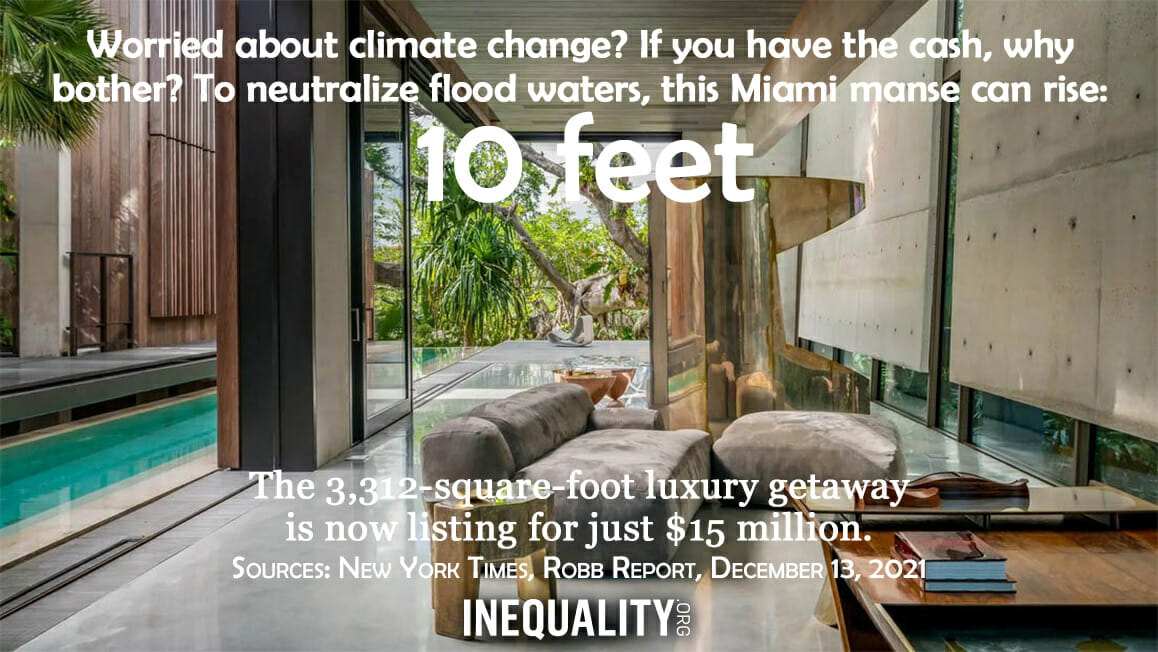 |
|
|
|
| |
|
| TOO MUCH |
 |
| Tornados Kill. So Can Amazon’s Business Model. |
| Ferocious winds that peaked at 150 mph just over a week ago swept through Southern Illinois — near the heart of America’s notorious “Tornado Alley” — and left six workers dead at an enormous local Amazon warehouse. Amazon officials, after the tragedy, issued the sorts of statements that corporate officials regularly issue after disasters. We’re “deeply saddened.” Such a horrible act of nature. So tragically unpredictable. Or so Amazon — and Corporate America writ large — would always like us to believe. But the tragedy in Southern Illinois should not have taken anyone by surprise, least of all Amazon officialdom. Meanwhile, the personal fortune of Amazon’s Jeff Bezos almost hit $200 billion last week. Inequality.org co-editor Sam Pizzigati has more. |
|
|
|
| |
|
| MUST READS |
This week on Inequality.org
Sarah Anderson and Brian Wakamo, The Year in Inequality in 10 Charts. Our economic and racial divides grew even wider in 2021, but signs of hope do point the way to a more equitable future.
Anneke Van Woudenberg, Will Barrick Gold CEO Go Beyond Rhetoric to Deliver Justice for Victims of Police Killings at Tanzanian Mine?. The company's just-released human rights report doesn’t even mention a UK court case on behalf of victims of killings and injuries inflicted by security forces at the North Mara mine.
Elsewhere on the Web
Patricia Callahan, James Bandler, Justin Elliott, Doris Burke, and Jeff Ernsthausen, The Great Inheritors: How Three Families Shielded Their Fortunes From Taxes for Generations, ProPublica. In the early 1900s, several of America’s wealthiest claimed their fortunes would never survive intact through the years ahead. A century of tax avoidance later, their dynasties are still going strong.
Richard Wolff, A Critique of Obscene Wealth, Brave New Europe. Besides being unjust and risky, obscene wealth as an incentive remains completely unnecessary.
Daniel Hanley, The Dark Side Of Meritocracy, Noéma. What began as a principle that seemed to offer an alternative to inequality has become instead a justification for inequality.
Jake Johnson, Since 1978, CEO Pay Has Risen 1,322%. Typical Worker Pay? Just 18%, Common Dreams. The U.S. economy would suffer no harm, says a new Economic Policy Institute report, if CEOs made less and paid more in taxes.
Sally Jenkins, The NFL’s silence about Daniel Snyder says plenty about its principles, Washington Post. NFL pro football owners use stadiums at massive public expense — and then privatize all the profit and silence all the scandal.
Russell Berman, The Democrats Fighting to Protect the Coastal Elite, Atlantic. For years, the crude system for calculating flood premiums made no distinction between fancy homes directly on the water and tiny shacks a mile inland.
Robert Reich, This tax loophole costs $180bn a decade. Why won’t Democrats close it? Guardian. The sole reason: fierce lobbying by the private equity industry.
Jan Weir, How Wall Street Created the New Divisive America, LA Progressive. A look at five pivotal points over the past quarter-century where Wall Street-inspired machinations turned reforms into new income opportunities — for the already rich. |
|
| |
|
| A FINAL FIGURE |
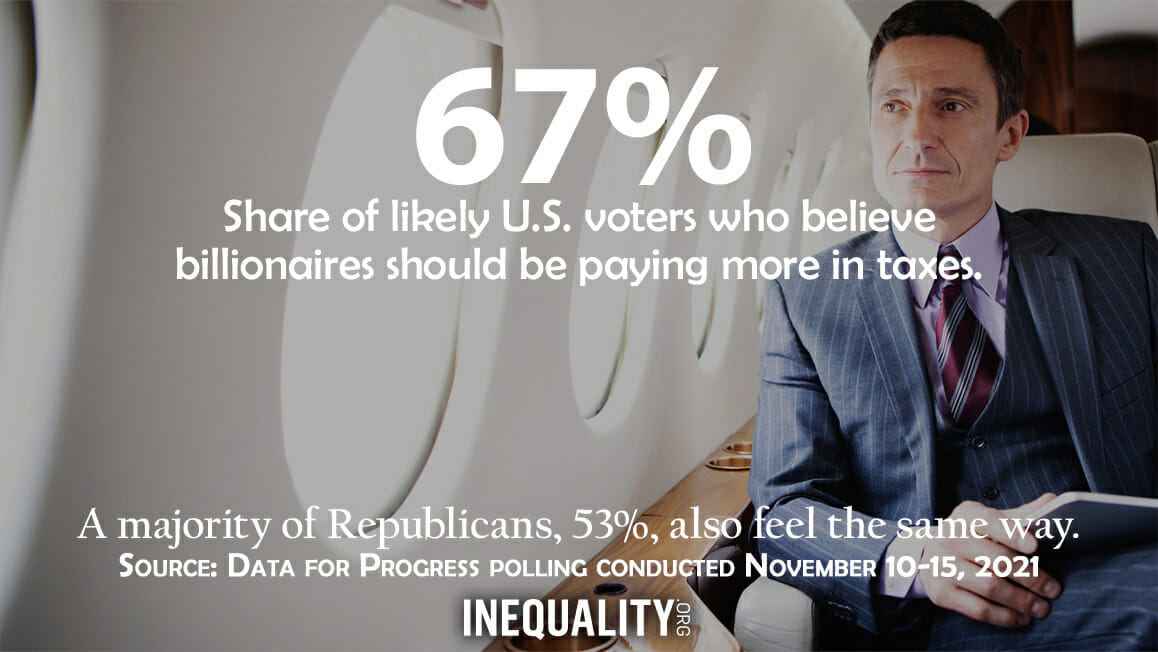 |
|
|
|
| |
|
| BE THE 1% (NO, NOT THAT 1%) |
 |
Our goal for 2021: that 1% of our Inequality.org subscribers become monthly sustainers and help grow our newsletter and research efforts. Be the 1%, for as little as $3 a month! |
|
|
|
| |
|
|